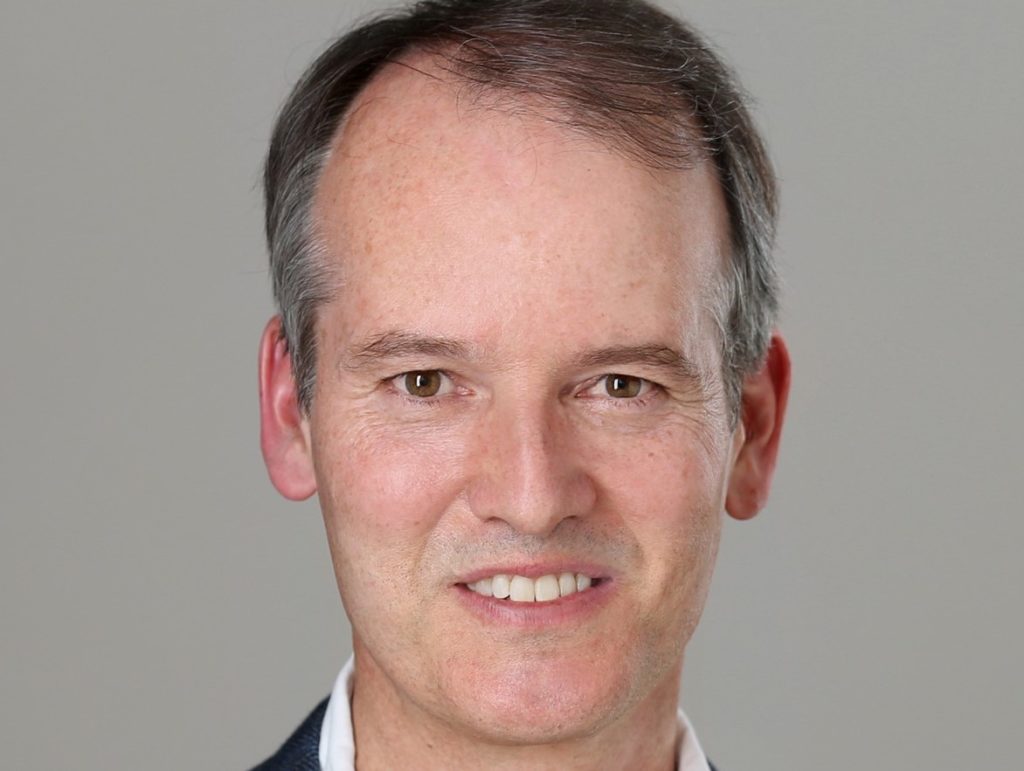Your Daily Phil: How John MacIntosh bridges philosophy and philanthropy + COVID Passover leniences
Good Tuesday morning!
Four states that host about 30% of Jewish nonprofit overnight camps — Connecticut, Massachusetts, New Jersey and New York — have announced in the past week that they will allow camps to open in the summer of 2021.
“Those are bellwether states that did not open in 2020, and other states that didn’t open could easily be watching what they’re doing,” Jeremy Fingerman, CEO of the Foundation for Jewish Camp, told eJewishPhilanthropy, citing California, Illinois, Oregon and Washington as states that might take cues from the Northeast. Pennsylvania, which hosts the largest number of Jewish camps, allowed camps to open last summer, but most Jewish camps had already decided to close by the time the state made its announcement.
This summer is expected to see double the number of first-time campers, which has resulted in higher-than-normal demand, Fingerman said. About 30% of the 45 Jewish federations that provide grants for camp have either disbursed all of their funds or established waiting lists.
The ask
John MacIntosh: from private equity, to philosophy, to philanthropy


Courtesy
As managing partner of SeaChange Capital Partners, a nonprofit founded in 2007 by a group of Goldman Sachs alumni, John MacIntosh helps lead an organization whose mission is to bring skills developed in finance, technology and real estate to bear on the challenges facing nonprofits. SeaChange counts a range of Jewish organizations as clients. Today, SeaChange is working with UJA-Federation of New York to help foster collaboration among the charity’s grantees, MacIntosh said, and has also been involved in discussions involving possible mergers and collaboration between synagogues in the New York area. MacIntosh, who joined the firm in 2008 after working at Warburg Pincus’ London, New York and Tokyo offices, spoke with eJewishPhilanthropy’s Helen Chernikoff about SeaChange’s work with the Jewish community, and the connections between philanthropy and philosophy.
This interview has been edited and condensed.
Helen Chernikoff: What interests you about working with the Jewish community?
John MacIntosh: I hadn’t appreciated as I maybe should have what a deep connection people feel to their synagogues. I hadn’t appreciated some of the challenges — demographic changes, new ways of being, and now COVID — that are putting pressure on some of these organizations. What gives me hope is that people are looking at these challenges straight-on, and they’re trying to make good decisions. The quality of the governance and the seriousness of purpose has given me hope that these organizations are going to be able to reinvent themselves to stay relevant, especially for young people.
HC: What worries you, even as you see reason for hope?
JM: How do we recover from the last 12 months, on all fronts: the national reckoning with racism, the existential challenge to democracy and the fiscal crisis. What evolved role do nonprofits play?
HC: There’s a robust debate happening about the role of nonprofits. Some worry that nonprofits are doing the work of the government. Do you have any thoughts on that conversation?
JM: I say this as a Canadian; the not-for-profit sector is an American miracle. There’s no country that has the vibrancy of the U.S. not-for-profit sector. There’s a lot of things that philanthropy does, that if philanthropy didn’t do it, it wouldn’t get done. Arts and culture, say, or religious organizations, for that matter; the truth is, these things happen when people come together with nonprofits.
Passover prep
Rabbinical Assembly’s Passover leniencies continue for second year


URJ
The continuing pandemic and imposed health restrictions have prompted the Conservative movement’s Rabbinical Assembly to retain the leniencies instituted last year regarding food restrictions and family gatherings during Passover, which begins at the end of the month, Stewart Ain reports for eJewishPhilanthropy.
Not the norm: “When my subcommittee wrote this year’s recommendations, we wanted to be sensitive to the fact that many people are still not living lives that in any way resemble pre-pandemic times, particularly around food and gatherings,” explained Rabbi Aaron Alexander. Although most had Seders at home in 2020, Alexander expects more people to travel this year. But he said he believes communal Seders will continue to be restricted to Zoom.
Guidelines: The guidelines note for the first time, Alexander said, the difficulties that some people may experience getting food during the pandemic, some of which arise from the use of shopping apps in which customers select items online and a third party or grocery store employee does the physical shopping. “It has become quite common for many folks to use food-shopping services in which individuals shop on behalf of others and drop products off at the door,” he said. “While not inherently problematic for Passover, it is not uncommon for shoppers to substitute similar items for others, grocery stores often mismark products with their own signage, and kosher sections can be confusing for the inexperienced Passover shopper.”
‘A simpler holiday’: “For me, one of the hidden blessings of Passover is to get to the essence of what the holiday is all about,” Rick Jacobs, president of the Union for Reform Judaism, told eJP. “Many people feel the holiday is inauthentic if they can’t find kosher-for-Passover marshmallows or don’t have a shank bone for the seder plate. The Jewish tradition is to substitute. You can use a beet for a shank bone, for instance. We don’t need all the stuff we think we need for Pesach, and I found that liberating. Do I really need to have both brisket and chicken? What would happen if I just had chicken? I want to empower our families to be creative and make as much of the ritual as we can. I’m not a scrooge, but I try to model a simpler holiday.”
Secret exposed
Camp is not for campers, but it’s also not for counselors: the well-kept secret of the unit head


Foundation for Jewish Camp
While third- and fourth-year counselors benefit so much more than younger counselors, the staff members who stick around long enough to become unit heads are the ones who really reach the true pinnacle of the camp experience, writes Shira Forester in an opinion piece for eJewishPhilanthropy.
Well kept secret: While the role of unit head provides a number of opportunities to develop concrete professional skills, it also offers a rare, unparalleled opportunity to learn how to be a leader. Camp leadership teams should not only recognize this but promote it. They should advertise that working as a unit head not only applies to professions but creates professionals. It shapes who people are. This is one of the best kept secrets at summer camps. It remains a secret because most only discover it once they have lived it themselves.
Worthy Reads
Whose Holiday: “A calendar should serve the population, rather than the population bowing to the calendar,”contends Petula Dvorak in a Washington Post opinion piece that shines a light on debates in Fairfax County, Va., over whether to add festivals like Eid al-Fitr and Rosh Hashanah to the academic calendar. Jewish and Muslim parents have joined a school board task force formed to address the issue, which has been discussed for years as the Northern Virginia county’s population has diversified. The school board tried to remedy the issue by rebranding the Christmas and Easter holidays as secular breaks, but more must be done, Dvorak writes. [WaPo]
Yes/And: Most non-profits focus their donor communications too narrowly, by emphasizing compelling stories of short-term impact and neglecting discussions of strategy and a broader vision, writes Derrick Feldmann, founder of the Millennial Impact Project, in Candid’s PhilanTopic blog. But social organizations need both to have a proactive approach that drives progress, and to share that with supporters, Feldmann suggests: “The simple fact is that both approaches are necessary.” [PhilanTopic]
Rethinking Big: The National Association of System Heads (NASH) — an association for public university systems — is focused on both immediate necessities and big picture needs. “Leaders must be able to move back and forth between “the field of action and the balcony,” relates Nancy L. Zimpher, a senior fellow at NASH and former chancellor of the State University of New York, in Inside Higher Ed. Public university leaders are now creating what they call “the Big Rethink” to use their systems to create and multiply changes in education, health care and the economy. One idea: a massive new platform that coordinates student internships. [InsideHigherEd]
Closing Up: A new joint report by the Center for Disaster Philanthropy and Candid, a philanthropy research group, which revealed that COVID-19 triggered an unprecedented surge in giving, also predicted than more than one-third of U.S. nonprofits are in danger of closing within two years due to the financial havoc wrought by the virus, writes the editorial board of the Richmond Times-Dispatch in an op-ed urging readers to support their favorite charity. The researchers conducted stress tests of varying severity on about 300,000 nonprofits and found that even under realistic scenarios, closures would climb into double-digit percentages. [RichmondTimesDispatch]
Community Comms
Apply! Want to join the team at Jewish Insider/eJewish Philanthropy? We’re looking for a top-notch philanthropy editor. Learn more here.
Be featured: Email us to inform the eJP readership of your upcoming event, job opening, or other communication.
Word on the Street
In The Equality Can’t Wait Challenge, powered by Melinda Gates‘ investment and incubation company, MacKenzie Scott and the Charles and Lynn Schusterman Family Philanthropies, 10 projects will move on to the final stage of the competition, which will award $40 million to help expand women’s power and influence in the United States by 2030 … Jerusalem Philanthropic Initiatives has appointed Dr. Haneen Mgadlh director of leadership development and strategy as of March 1 … Sen. Jacky Rosen (D-NV) was named the chair of the newly reestablished International Council of Jewish Parliamentarians …
Pic of the Day


Mark Neyman/GPO
Israel’s President Reuven Rivlin celebrates 100 years of the Israeli Moshavim Movement at Beit HaNasi.
Birthdays


Jared Lakind / Flickr via Wikimedia Commons
Pitcher for Team Israel at the 2017 World Baseball Classic and slated to be on the team at the upcoming Summer Olympics in Tokyo, Jared Lakind…
Founder of the Bad Boy Furniture chain and former mayor of North York, Ontario and later Toronto, Mel Lastman… Professor emeritus of sociology and Jewish studies at the University of Toronto, Y. Michal Bodemann… Sag Harbor-based painter, sculptor and printmaker, Eric Fischl… Radio and television journalist, Ira Flatow… Author and political journalist, Michael Kinsley… Israel’s Minister of Economy, Amir Peretz… President and CEO of NYC’s flagship public TV station WNET, Neal Shapiro… Founder and president of NYC-based Gotham Media, Gordon Platt… CEO, chairman and controlling shareholder of Quontic Bank, Steven Schnall… VP of product, choice and competition at Facebook, David I. Ginsberg… SVP at the D.E. Shaw group, Matthew Vogel… CEO of the Trevor Project, Amit Paley… Co-founder and CEO at ImpactTechNation, he is also a co-founder of Wake-Up Jerusalem (Hitorerut B’Yerushalayim party), Hanan Rubin… Israeli-born singer, Shlomit Levi… Communications director for North Carolina Governor Roy Cooper, Alissa “Sadie” Weiner… CEO at New Orleans-based QED Hospitality, Emery Whalen… Founding partner of Mothership Strategies, Jake Lipsett… Israel and antisemitism education coordinator at the Indianapolis Jewish Community Relations Council, Marla Topiol… First round pick by the San Jose Sharks in the 2020 NHL Entry Draft, Ozzy Wiesblatt… Private equity and venture capital investor, Howie Fialkov…








